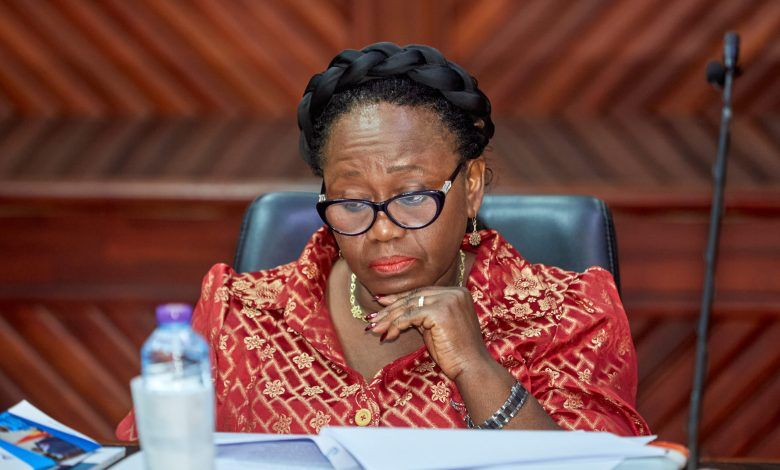The ongoing process to remove Chief Justice Gertrude Torkonoo from office has become a focal point of political analysis in Ghana, with University of Ghana political science lecturer, Dr. Joshua Jebuntie Zaato, suggesting it is part of a larger strategic maneuver by the National Democratic Congress (NDC). He posits that the Chief Justice’s removal is not an isolated incident but a calculated step aimed at ultimately ousting the Electoral Commission Chairperson, Jean Mensa, and her deputies. Three petitions alleging misbehavior and incompetence against the Chief Justice led President John Dramani Mahama to suspend her and establish a five-member committee of inquiry to investigate the claims. Dr. Zaato views Chief Justice Torkonoo as a “victim of circumstance,” caught in the crosshairs of a broader political agenda. He believes the NDC’s endgame is to reshape the electoral landscape ahead of future elections.
Dr. Zaato’s analysis highlights the internal dynamics within the NDC, suggesting that hardline elements within the party, whom he refers to as “hawks,” have successfully persuaded President Mahama to pursue this course of action, despite any potential personal reservations the President might hold. He draws a contrast between these “hawks,” who favor aggressive tactics, and more moderate factions within the party. According to Dr. Zaato, the “hawks'” influence has prevailed in this instance, leading to the unprecedented move against the Chief Justice. He speculates that President Mahama might not ideally wish to have the removal of a Chief Justice as part of his political legacy but has succumbed to pressure from within his party.
The allegations against Chief Justice Torkonoo and the subsequent inquiry have created a contentious political climate in Ghana. While the official narrative centers on the need to investigate claims of misconduct, Dr. Zaato’s interpretation suggests a deeper political motive. His analysis raises questions about the independence of the judiciary and the potential for political interference in the country’s democratic institutions. The situation underscores the delicate balance between upholding the rule of law and navigating partisan political interests.
Dr. Zaato’s perspective also raises concerns about the potential implications for the future of Ghanaian democracy. If the Chief Justice’s removal is indeed part of a larger plan to influence the electoral process, it could undermine public trust in the integrity and impartiality of the electoral system. The timing of these events, occurring against the backdrop of upcoming elections, further fuels speculation about the NDC’s intentions. The political scientist’s assertion that the Chief Justice’s removal is a foregone conclusion, regardless of the committee’s findings, adds another layer of complexity to the situation. He predicts that Ghana will have a new Chief Justice by the end of the year, further solidifying his view that this is a preordained outcome.
The ongoing proceedings against Chief Justice Torkonoo have far-reaching implications beyond the immediate legal and political context. The case raises fundamental questions about the separation of powers, the independence of the judiciary, and the role of political parties in influencing state institutions. The outcome of the inquiry and its aftermath will likely shape the political landscape of Ghana for years to come, setting a precedent for how future disputes involving high-ranking judicial officials are handled. The situation demands careful scrutiny and raises concerns about the potential erosion of democratic norms and principles.
Ultimately, the removal process of Chief Justice Torkonoo has become a significant political event in Ghana. While framed as a response to allegations of misconduct, Dr. Zaato’s analysis suggests it is a move orchestrated by the NDC to achieve a broader political objective, namely, the removal of the Electoral Commission Chairperson. This perspective casts a shadow over the proceedings, raising questions about the true motivations behind the Chief Justice’s suspension and the potential consequences for the future of Ghana’s democratic institutions. The case underscores the complex interplay between law, politics, and power in the country.














